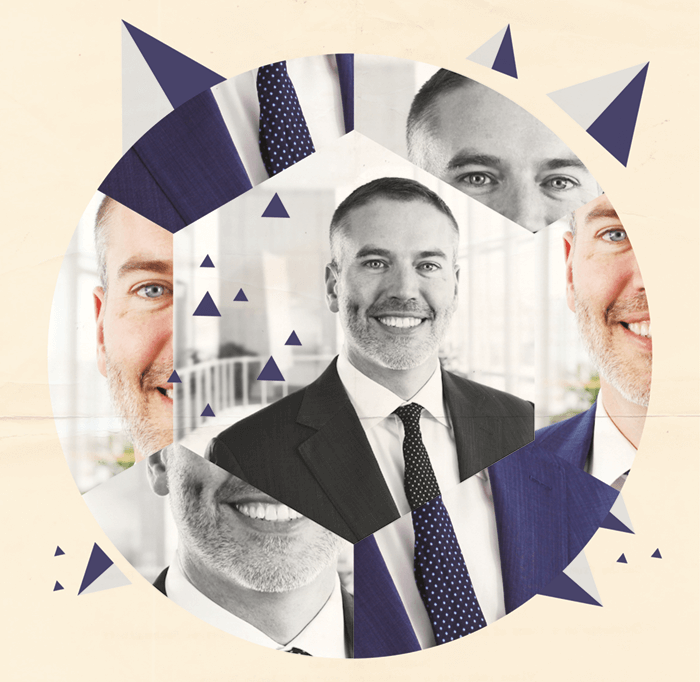
My grandma is my hero. So when Vance was recruiting me from fellowship, he took a selfie with her and said: “Your grandma wants you to do her cataract surgery and she’s not willing to travel more than 75 miles for it. Looks like you’re joining me.” That sealed the deal.
Delivering on the trust that my patients put in me in their moments of vulnerability. In a professional capacity, I try to inspire students, fellows and colleagues the same way my heroes inspired me. We’ve only got one swing at life, so we need to go for it!
I feel like a kid in a candy store… To grow up in a town of 500 people and be able to assist the professionals who are dedicated to getting the first humans to Mars – it’s not the typical story. I think it will be the single, most unifying moment in human history. If I can play even a tiny role in that monumental feat, my kids will think I’m cool. It’s especially gratifying that the principle of intraocular with intracranial pressure to treat glaucoma could help long term space flight. So terrestrially Equinox is using negative pressure goggles to treat glaucoma, while in space perhaps positive pressure goggles could treat papilledema.
The most painful part of cataract surgery is starting the IV, and we weren’t convinced we needed it. We tried sublingual administration in liquid form and thought it worked well, but it didn’t have everything that we needed – the same with IV ketamine and midazolam. So I approached Imprimis and said, “I’ve come up with something a little different. I think we have a real opportunity to help patients.” Historically, there has been very little innovation in anaesthesia for eye surgery, but the MKO Melt is getting adopted quite rapidly.
If I have an idea and it won’t go away, I’ve got to act on it. I don’t feel like I have some special ability – my mind just doesn’t rest until I come to a conclusion.
It’s an online second opinion service that basically gives people access to world class care from anywhere. For example, if someone was diagnosed with Fuchs dystrophy and their ophthalmologist wasn’t great at explaining the procedure, they could go to ExpertOpinion.md. There is a list of ophthalmologists with prices by their names: the doctors choose the price they charge and patients choose their doctor. World experts may command a higher price, where other fantastic doctors may choose a lower price. The patient can see a video of us, along with our online ratings, how many surgeries we perform, and our publications. The doctor you pick reviews your records, writes a report and sends you an audio file telling you what your treatment options are and recommendations.
Patients can choose a doctor without having to take a day off work, and doctors don’t have to be in the clinic. It’s good for everyone. Ten years ago it would have been crazy to say: “I’m going to pick somebody up and take them to the airport for $20.” Now Uber is a $52 billion company. Airbnb is the same story. All they do is connect people who have a service with someone who needs a service, and make that as frictionless as possible. In my mind, there is no more precious and valuable service than what doctors provide to patients, but it is one of the hardest to access. We’re trying to make that as easy as possible.
Of course, I think noninvasively dialing in IOP will be important for normal tension and severe glaucoma patients. I believe changeability/upgradability versus adjustability is going to be the story of IOLs 10 years from now. I also think drug delivery is going to be a big deal and, as a burgeoning presbyope, I really hope we get a consistent solution in the next three to four years – whether that means better IOLs or an eye drop we can use on demand.
I originally wanted to be an optometrist; it was actually my family optometrist who suggested I should become an ophthalmologist instead. He gave me the single most actionable piece of advice I have ever received: “A few years of work on the front end of your life to do what you’re meant to do for the rest of your life is always time well spent.” He said: “Humor me and do the MCAT,” so I did, and it’s been like a hand in a glove from the moment I started my residency.
If I had been given a blank piece of paper 25 years ago, I would not have had the courage to write my story as well as it has turned out. I’m just really grateful for our profession.
